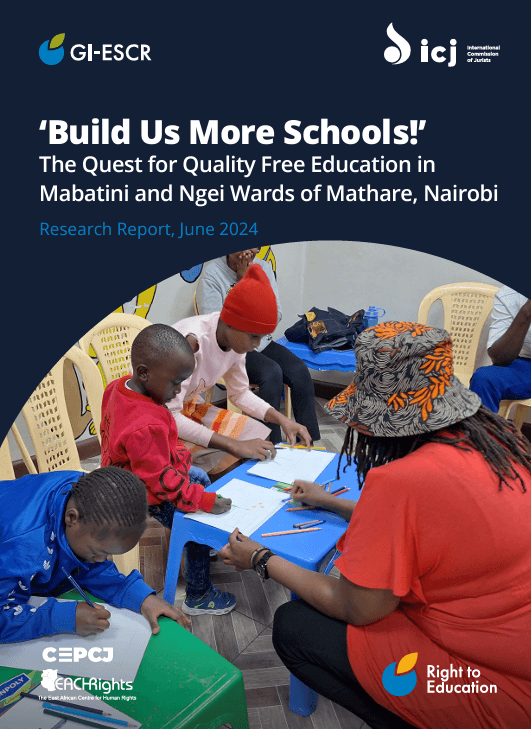The research report, ‘Build Us More Schools’: The Quest for Quality Free Education in Mabatini and Ngei Wards of Mathare, Nairobi, was produced by the Mathare Community Education Taskforce (Taskforce), in partnership with the International Commission of Jurists (ICJ) and the Global Initiative for Economic, Social and Cultural Rights (GI-ESCR).
The report documents a variety of human rights concerns arising, in part, from the underfunding of education in Kenya. A lack of resources, including financial resources and land, is sometimes given as a reason for the failure of government to build enough public schools to accommodate all learners. Public schools that operate in Mathare are overcrowded and do not have enough teachers to provide quality education to all students.
Private schools, including informal private schools known as Alternative Providers of Basic Education and Training (APBET schools), established under policies promoted to improve access to education, enjoy little or no government support whether financial or otherwise. There is minimal effort to monitor and evaluate the quality and conditions of education at such schools, with evidence suggesting that though such oversight is required by law, only 12% of Kenya’s learning institutions are assessed annually.
Poor funding of education of education results in inequality in education and charging of unaffordable fees in both public and private schools.
Grounded in interviews with parents and staff at private educational institutions in the Mabatini and Ngei wards, the report documents various critical challenges in access to education. The report also contains detailed recommendations addressed to a range of Kenyan authorities.
Downloads
- [Full Report] The full report is available here.
- [Executive Summary] An executive summary of the report is available here.

